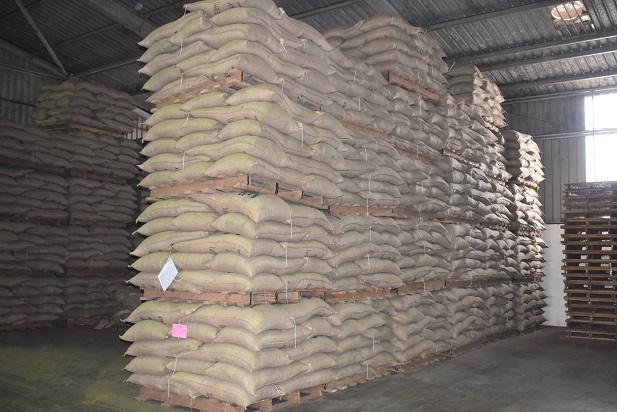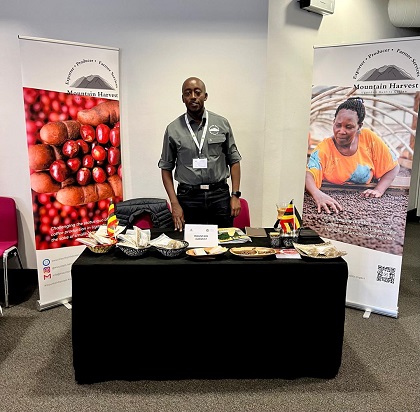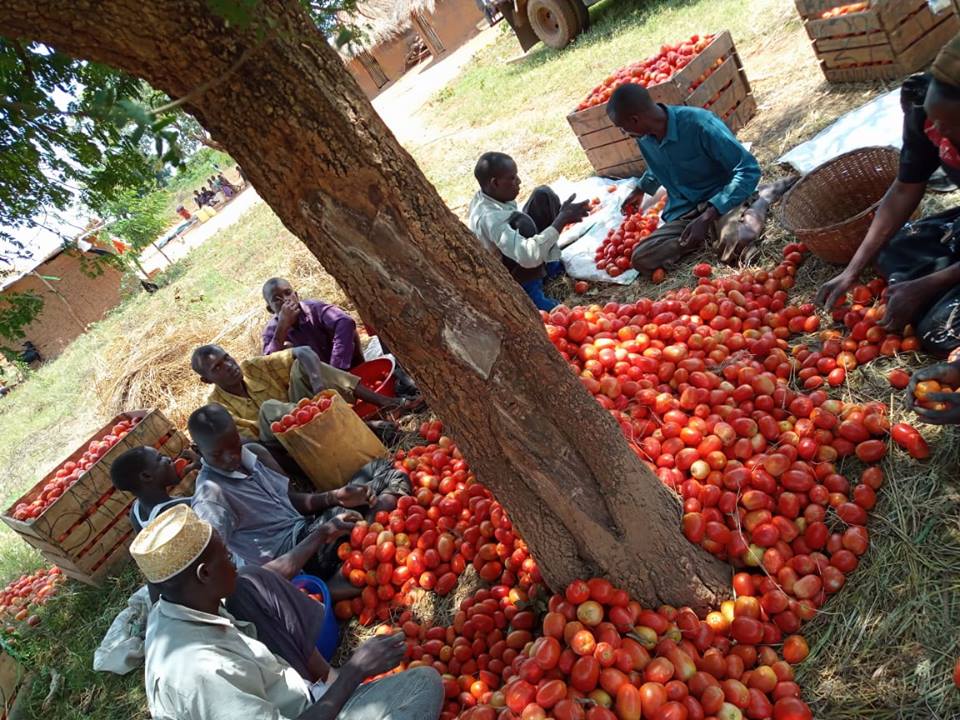Justine Tuko and his wife Rhoda Auma, pruning their cabbage
In the dry plains of Karamoja, a region often deemed unsuitable for agriculture, Justine Samuel Tuko, the Deputy Resident District Commissioner (D/RDC) of Moroto, is proving otherwise.
Tuko has transformed his farmland in Lobulio village, Iriiri Sub County, Napak district, into a thriving agricultural model amidst the region’s harsh climatic conditions.
He has cultivated two and a half acres of onions, one acre of cabbage, 40 acres of maize, 10 acres of groundnuts, six acres of beans, and 14 acres of sunflowers.
As many farmers in Karamoja continue to struggle with late planting and weed control, Tuko is already reaping a successful harvest of maize, onions, and beans. His early-planting strategy, he says, is key to beating the unpredictable weather that has continued to frustrate farmers in the region.
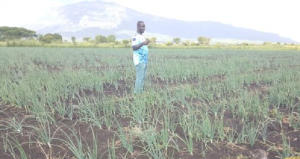
Tuko explained that he began land preparation as early as January and proceeded with harrowing in late February. He conducted dry planting in early March, anticipating the onset of rains—and his gamble paid off. “By the time the rains resumed, the seeds were already in the ground, ready to germinate,” he said.
Tuko said his crops were already at weeding stage when other farmers were still opening up their fields. This head start has enabled him to withstand the intense heat that has dried up many gardens planted late. His efforts have not gone unnoticed. Tuko’s success is inspiring surrounding communities to adopt early-planting techniques.
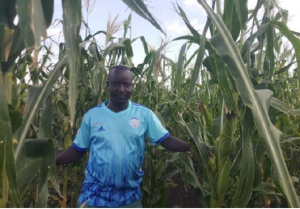
Some farmers have already started implementing the model, while others are preparing to do so in the next planting season. Tuko has called on agricultural extension workers to increase their presence at the grassroots, where many farmers struggle with limited knowledge on seed selection, spacing, and identifying high-quality, improved seed varieties.
He decried the continued use of poor-quality hybrid seeds bought from open markets, which often fail to yield, further worsening food insecurity. Despite the promising harvests, Tuko is not without challenges.
He cited high labour costs, pest infestations, water scarcity, and erratic weather patterns as major hurdles. He specifically mentioned the armyworm, which has damaged parts of his maize garden despite repeated spraying.

He also raised concerns about birds, insects, and animals that eat seeds from the soil or uproot seedlings, compounding farmers’ difficulties. Tuko urged the district production office to provide timely weather forecast updates to help farmers plan effectively. He further called upon local leaders to lead by example in the fight against hunger by engaging in farming activities themselves.
“Farming should be embraced as the only sustainable way of fighting hunger in Karamoja rather than relying on relief handouts from development partners,” Tuko said. He appealed to the government to provide more tractors to help farmers open larger acreage, noting that tractors should be made available as early as December, not during the rainy season when demand surges.
He also called on the government to support model farmers with irrigation systems and revive seed distribution under the Operation Wealth Creation program to improve access to quality seeds across the region.
Tuko’s initiative stands as a beacon of hope and a practical solution to chronic food insecurity in Karamoja, showcasing how timely planning, innovation, and government support can turn the tide.
-URN



